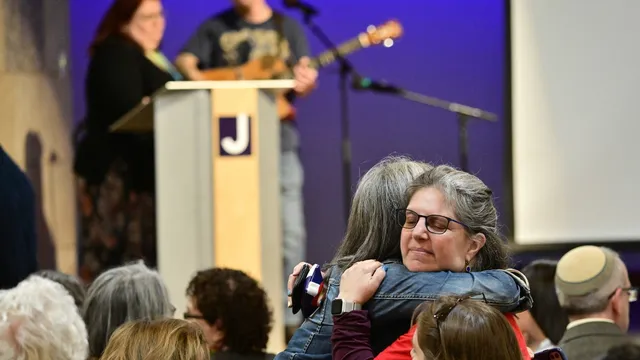
Firebombing attack on Boulder demonstration injures 15
2025-06-08 00:00- Fifteen people were injured in a Molotov cocktail attack during a demonstration in Boulder, Colorado, on Sunday.
- The assailant, Mohamed Sabry Soliman, has been charged with multiple counts, including federal hate crime.
- The community is coming together for vigils to support the victims, emphasizing resilience against violence.
Express your sentiment!
Insights
In Boulder, Colorado, an incident occurred during a demonstration on Pearl Street where participants were advocating for the release of Israeli hostages in Gaza. On Sunday, a man named Mohamed Sabry Soliman threw two Molotov cocktails at the group, injuring a total of 15 people, with victims ranging in age from 25 to 88. The attack led to a massive community response, with hundreds gathering for a vigil at the local Jewish Community Center. Amid this unrest, a federal judge also blocked the deportation of Soliman's family, who had been taken into custody following the attack. The nature of the attack was compounded by the fact that it was motivated by Soliman’s apparent political beliefs, as he yelled “Free Palestine” while carrying out the act. Soliman, who has been charged with federal hate crime and state attempted murder counts, is reportedly being held on a $10 million cash bond. Witness accounts from the vigil highlighted the horror of the attack, with one victim recalling nearly fatal circumstances as flames engulfed another individual nearby during the assault. This incident has provoked strong reactions, not just locally but from international leaders, with prayers and solidarity pouring in from various Jewish organizations and Israeli officials. The Consul General of Israel to the Pacific Southwest expressed shock that such violence occurred in a normally peaceful city like Boulder and noted the proactive measures taken by Israeli officials to gather information and support for the affected community. Further complicating the situation is Soliman's legal status in the U.S., as it has been reported by federal authorities that he was living in the country illegally. His asylum application has also drawn in his family, who now face uncertainty as they are caught up in this legal drama. The community vigil aimed to strengthen ties and provide support to those affected by the attack, with communal messages centered around resilience and the importance of standing against acts of terrorism and violence.
Contexts
Hate crimes in the United States represent a significant issue impacting individuals and communities, marked by bias against race, ethnicity, national origin, religion, sexual orientation, gender identity, and disability. These crimes not only harm the immediate victims but also instill fear within affected communities, leading to a pervasive sense of vulnerability. Consequently, understanding hate crimes and their legal implications is crucial in addressing the issue effectively. The FBI and the Bureau of Justice Statistics often provide data indicating the prevalence of hate crimes, which, while underreported, offer insight into the growing concern over such acts. In 2021, for instance, hate crimes against individuals on the basis of race and ethnicity were predominantly reported, particularly incidents targeting African Americans and members of other minority groups. The legal framework governing hate crimes in the U.S. comprises federal, state, and local laws. The Federal Hate Crime Statistics Act mandates the FBI to collect data on hate crimes across the nation. Furthermore, the Matthew Shepard and James Byrd, Jr. Hate Crimes Prevention Act, enacted in 2009, expanded the definition of hate crimes to include those motivated by gender and sexual orientation, as well as disabilities. States have also adopted their own hate crime laws, which can vary significantly in scope and enforcement. These legal mechanisms are designed to provide heightened penalties for crimes motivated by bias, intended as a deterrent against such offenses and as a means to promote social justice. Despite these legal frameworks, challenges persist in the effective enforcement and comprehensive documentation of hate crimes. Victims often face barriers in reporting due to fear of retribution, mistrust in law enforcement, or lack of awareness about the existence of hate crime laws. This underreporting leads to a lack of adequate resources for prevention, education, and intervention initiatives. Moreover, there can be inconsistencies in how hate crimes are classified and prosecuted, which can undermine the efficacy of the laws meant to protect individuals from such acts. Advocacy groups broadly emphasize the need for better training among law enforcement and increased community outreach to encourage reporting and promote awareness. Addressing hate crimes in the U.S. requires a multi-faceted approach, encompassing legal action, community engagement, and education. Efforts should focus on enhancing support systems for victims, improving data collection methods, and ensuring accountability for offenders. Legislative initiatives may include expanding definitions of hate crimes to cover emerging forms of discrimination and bias. Moreover, fostering dialogue and promoting inclusivity within communities can play a vital role in mitigating hate crimes. By combining legislative action with community efforts, the U.S. can move toward creating a safer environment, free from the threat of hate-based violence.